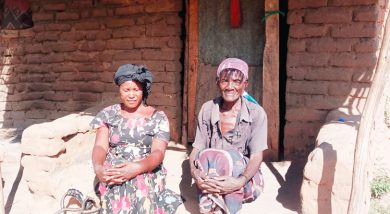Bringing satellite TV closer to rural masses
Isaac Damian of Chokola Village in Nsanje is no longer your typical villager. For the first time, his family enjoys satellite television right in their home.
“I watch over 20 television channels. My family is excited. With these free decoders and dishes, we don’t even envy city dwellers. We are better-off here in the village,” he says.
The satellite dishes seen on rooftops in Tengani in the district confirm that the rural population is not lagging behind in the digital era. In fact, satellite television is bringing members of Damian’s family closer to each other. Unlike in the past, they usually sit and eat together while watching TV.
“Previously, my children used to go and watch video shows at the trading centre. They would spend a lot of money and time there. Sometimes, they returned home late in the night. The family was disjointed,” he recalls.

Damian’s community is one of 500 villages in Malawi earmarked to receive free satellite decoders and dishes from the Chinese government which targets 10 000 villages across Africa.
In Nsanje, Patuma Nanjanga, a small-scale businessperson, is also excited to have a satellite TV in her home.
“This is a big saving,” she says. “I was planning to buy a TV set. Now, those resources are saved for other purposes,” she says.
Watching TV after the day’s hard work is good for her health and family, she says. They relax together while learning topical things happening in other parts of the world.
“We are now part of the global village,” she brags.
The 10 000 African Villages Satellite TV Project is part of China’s people-to-people bilateral aid to Africa President Xi Jinping unveiled at the Sixth Summit of the Forum on China-Africa Cooperation in Johannesburg, South Africa, three years ago.
Malawi is one of 25 African countries benefiting from the initiative to increase access to direct-to-home satellite TV being implemented by the Ministry of Information and Communications Technology.
Minister of Information and Communications Technology Nicholas Dausi is grateful to the Chinese government for the project being implemented by his ministry following the enactment of the Access to Information Act.
He says: “The project is enabling rural Malawians to enjoy rich and various satellite TV channels just like their counterparts in urban areas.
“Besides, it will offer many people an opportunity to access as much information as possible, thereby making the rural communities more enlightened and progressive as they effectively participate in the country’s development and democracy.”
The Chinese government has engaged Star Times to connect the 500 villages identified by members of Parliament (MPs).
The firm is supplying each village with solar-powered TV sets comprising a 32-inch screen, two projector decoders, three satellite dishes and three solar panels and three batteries.
Just like that, rural households have access to 21 free channels, including three local TV stations: MBC, Times and Zodiak.
“This is a major initiative in media cooperation between China and Africa,” Star Times president Pang Xinxing told delegates from Africa and China at the fourth Forum on China-Africa Media Cooperation in July.
He added: “The project is designed to popularise digital television for rural areas in Africa. This is of great significance for the deep coverage of radio and television, breaking information barriers, strengthening quality-oriented education of the people and promoting social progress.”
Up to 20 households in each village have been identified to receive dishes and decoders. However, they need to have electricity and television sets to receive the free decoders and dishes.
Dedza East MP Juliana Lunguzi (Malawi Congress Party-MCP) says the project has come at the right time when Malawians in rural areas need information to make informed choices.
“People in the rural areas look for information, so this project provides a greater opportunity for them to get vital information,” she says.
Equally upbeat is Zomba Chisi MP Mark Botomani (Democratic Progressive Party-DPP), who commends government for sustaining the 10-year-old diplomatic ties with China.
“People in my constituency will spend their time usefully. They will be informed people and, therefore, make informed decisions and contribute to the socio-economic development of the country. I thank the President Peter Mutharika for accepting the project to come to Malawi,” he says.
Likewise, Nkhata Bay West MP Grace Chiumia (DPP)says the project will have great impact in her hard-to-reach, hilly constituency.
“My people will be part of the global community. We thank the President for this initiative,” she says.
So far, installation of the free-to-air satellite TV is nearing completion in Nsanje, where it has brought great excitement and expectations.
Dausi hinted that the President will launch the project soon.
Malawi, like many African countries,is migrating towards digital broadcasting. The International Telecommunications Union (ITU) requires all countries to ensure radio and TV stations migrate from analogue to digital broadcasting by June 2020.
China has made a commitment to further help Africa attain full digital migration, says Chinese Minister of National Radio and Television Administration Nie Chenxie.
“We will continue to support media digitalisation and reconstruction in African countries and actively implement varying projects to see digital TV services being provided to 10 000 villages in Africa,” he said at the Africa-China media gathering last month.
For Damian and his neighbours, it is interesting that the project is already narrowing the rural-urban gap when it comes to access to information and family entertainment. n





